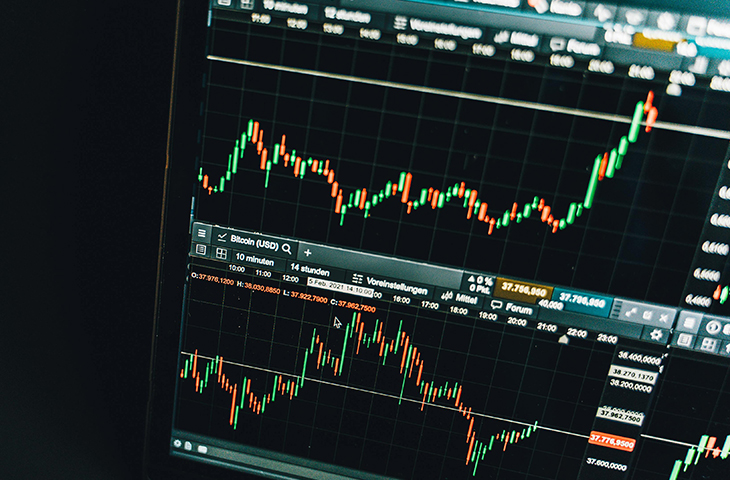Worried About "magnificent Seven" Volatility In 2025? The Vanguard Mega Cap Value Etf Might Be The Answer.

The Roundhill Magnificent Seven ETF (NASDAQ: MAGS) rose around 65% in 2024, nearly three times the gain of the S&P 500 index (SNPINDEX: ^GSPC). As the exchange-traded fund's name suggests, it owns just seven stocks Nvidia, Meta Platforms, Alphabet, Amazon.com, Microsoft, Apple, and Tesla, all of which are large growth companies. If you have a value bias or are simply worried about the fact that the market has been driven higher by such a small group of companies, the Vanguard Mega Cap Value ETF (NYSEMKT: MGV) could be your solution in 2025.
2024 was an odd market with a small group of big winners
When you look at the roughly 23% gain of the S&P 500 index in 2024, it seems like an exceptional year for the market as a whole. But it might not be as good as you think. The evidence for that comes from the Invesco S&P 500 Equal Weight ETF (NYSEMKT: RSP). This exchange-traded fund owns the same stocks in the S&P 500 index, but instead of weighting them by market cap, it uses an equal weighting methodology, as its name indicates. The difference is material.
Where to invest $1,000 right now? Our analyst team just revealed what they believe are the 10 best stocks to buy right now. See the 10 stocks »
As the chart above highlights, the Invesco S&P 500 Equal Weight ETF gained around 10% in 2024. That's not a bad year at all, but it materially lagged the market cap weighted version of the same basic portfolio. When you add in the roughly 65% gain of just seven ultra-large stocks, which the Roundhill Magnificent Seven ETF tracks, you can see pretty clearly where the difference arose. It's problematic, especially when you look at current valuation metrics.
The S&P 500 index's price-to-earnings (P/E) ratio is around 24 times. The Roundhill Magnificent Seven ETF's average P/E ratio is 32 times or so. To be fair, a P/E ratio of 32 isn't so high that it boggles the mind, but it's still around 33% above the market's average. If you care at all about value, you should probably avoid the Magnificent Seven stocks, and maybe even the S&P 500 index. Luckily, you have other options if you still want to own mega-cap stocks.

Image source: Getty Images.
The Vanguard Mega Cap Value ETF to the rescue
From a top-level view, the Vanguard Mega Cap Value ETF's average P/E ratio is around 21 times. That's below the average of the broader S&P 500 index, and far below the average of the Magnificent Seven. While some die-hard value investors might argue that a P/E above 20 isn't really in value territory, the key here is the pool from which the Vanguard Mega Cap Value ETF is fishing. This isn't an actively managed ETF, so it has to fill out its portfolio even if the broader market is a bit elevated.
Its starting point is simply the largest companies in the market. From there, it uses a multi-factor valuation model that looks at price-to-book ratio, future P/E ratio, historical P/E ratio, price-to-dividend ratio, and price-to-sales ratio. The companies with the best composite scores get in the index, which currently holds 136 stocks. Note that none of the Magnificent Seven are in the ETF's top holdings list. The ETF's expense ratio, meanwhile, is a tiny 0.07%.
As the chart above shows, the Vanguard Mega Cap Value ETF performed similarly to the equal weight version of the S&P 500 index in 2024. Going in, you know you're buying a fund that has lagged the market -- and, notably, the best-performing stocks in the market. But that's actually the point of buying it. If you're worried that the Magnificent Seven have risen to unsustainable heights, the Vanguard Mega Cap Value ETF is an offramp that lets you stay invested in large companies while minimizing exposure to the most expensive stocks in the size category.
The market is mercurial
Wall Street tends to swing between extremes, and right now the Magnificent Seven highlights an extreme focused on large growth stocks. At some point, it's highly likely that investors will lose interest in this very small group of companies and shift in a more value-oriented direction. If you add the Vanguard Mega Cap Value ETF to your portfolio as 2025 gets underway, you'll be ready for that transition, which could lead to a deep downturn for the Magnificent Seven.
Don’t miss this second chance at a potentially lucrative opportunity
Ever feel like you missed the boat in buying the most successful stocks? Then you’ll want to hear this.
On rare occasions, our expert team of analysts issues a “Double Down” stock recommendation for companies that they think are about to pop. If you’re worried you’ve already missed your chance to invest, now is the best time to buy before it’s too late. And the numbers speak for themselves:
- Nvidia: if you invested $1,000 when we doubled down in 2009, you’d have $358,640!*
- Apple: if you invested $1,000 when we doubled down in 2008, you’d have $46,181!*
- Netflix: if you invested $1,000 when we doubled down in 2004, you’d have $478,206!*
Right now, we’re issuing “Double Down” alerts for three incredible companies, and there may not be another chance like this anytime soon.
*Stock Advisor returns as of December 30, 2024
Suzanne Frey, an executive at Alphabet, is a member of The Motley Fool’s board of directors. John Mackey, former CEO of Whole Foods Market, an Amazon subsidiary, is a member of The Motley Fool’s board of directors. Reuben Gregg Brewer has no position in any of the stocks mentioned. The Motley Fool has positions in and recommends Alphabet, Amazon, Apple, Microsoft, and Nvidia. The Motley Fool recommends the following options: long January 2026 $395 calls on Microsoft and short January 2026 $405 calls on Microsoft. The Motley Fool has a disclosure policy.



